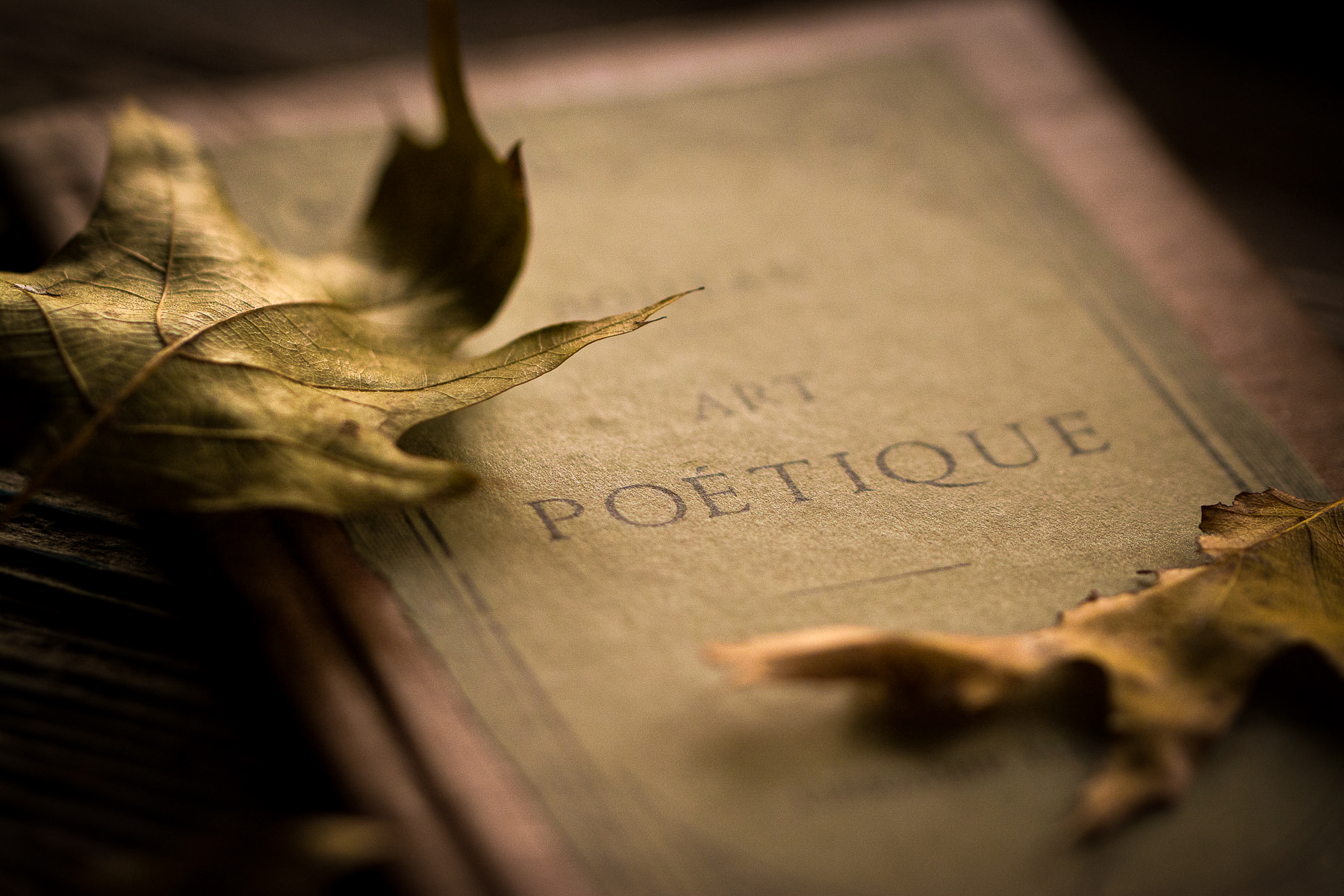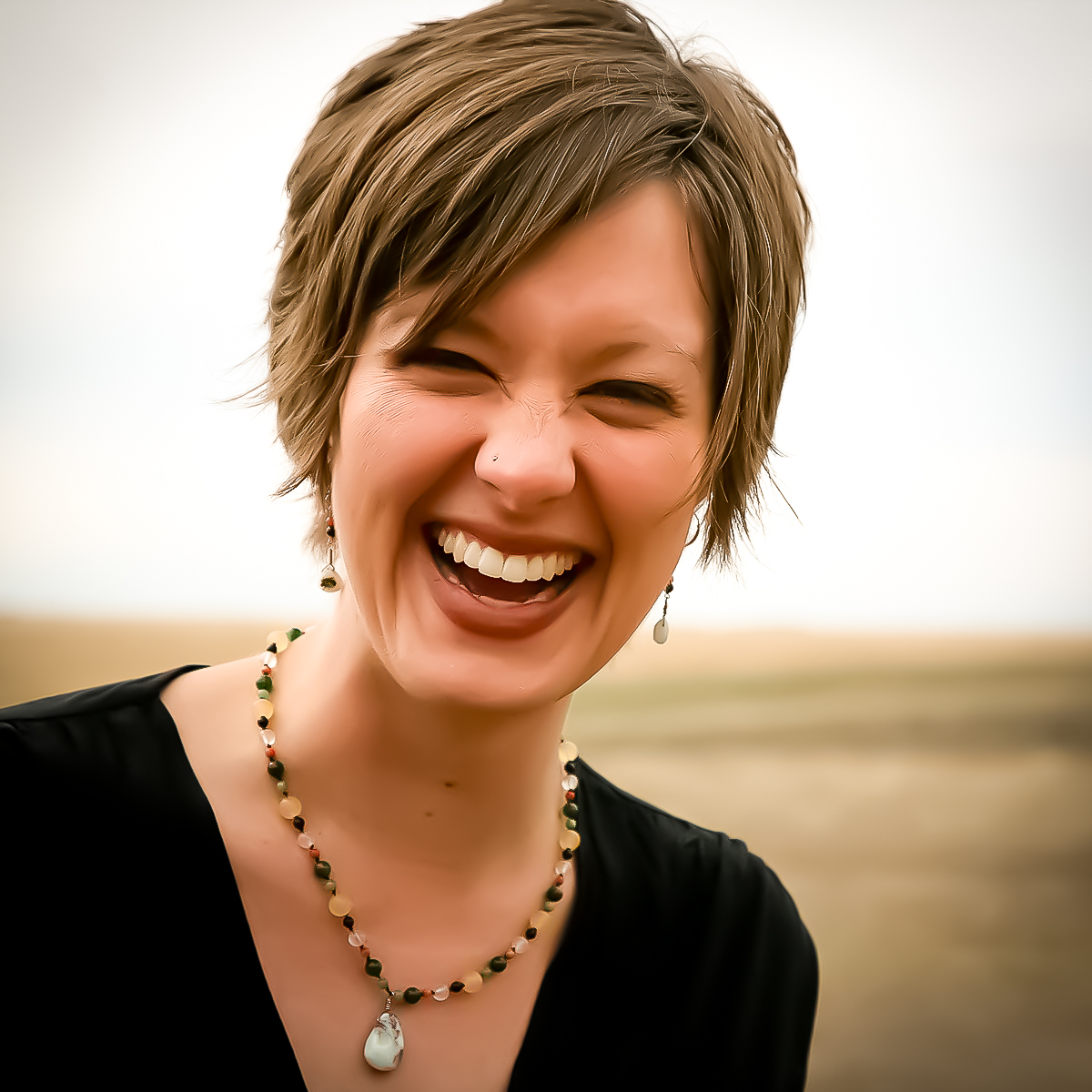The Cultivating Poetry column will explore both the writing and reading of poetry, and the practical ways this intersects with how our souls are formed. We will consider a range of poets, both contemporary and historical, looking for their invitation to us to see differently, to inhabit the world, together finding courage to live as a poeima in this beautiful, terrible world we have been given.
![]()
The stage creaked beneath my feet as I walked toward the podium, a clutch of poems in my damp palm. To my left, a man spread paint on a big canvas. Beyond the floodlights were the shadows of a hotel ballroom full of people. I was reading as part of a Sunday morning worship service that included several different art forms, at a conference for a Christian organization I had been around my whole life. Even though I had been invited, I felt awkward and out of place. I was sweating. My voice echoed in the room as I read a poem responding to George Herbert’s poem “Prayer.”
Later that morning, a woman stopped me in the hallway, eyes wide, earnest. “Can you please tell me what your poem ‘After Prayer’ meant?” I shook my head. “No, I can’t.” I could feel her discomfort, that I wouldn’t answer her. I explained that a poem isn’t complete until it has been received by someone else. That in this way, it is an act of relationship; the meaning the reader or listener brings is essential. Heat rose in my face as I spoke. I really believed what I had just said, but the gravitational pull to give a straightforward answer was strong.
An excerpt from Rilke’s Letters to a Young Poet is a place where I often return because of its invitation to leave the certitude to which humans so easily cling:
“Dear sir…be patient toward all that is unsolved in your heart and try to love the questions themselves like locked rooms and like books that are written in a very foreign tongue. Do not now seek the answers, which cannot be given you because you would not be able to live them. And the point is, to live everything. Live the questions now. Perhaps you will then gradually, without noticing it, live along some distant day into the answer.” [1]
I am not a scholar of any ancient languages, but I have always been a lover of words. The English word poem traces back through French and Latin to the Greek word, poeima. In the New Testament, the word poeima (translated “creative work,” “workmanship”) appears twice, first in Paul’s letter to the church in Rome, and then in his letter to the church in Ephesus. In the first mention [2], Paul is unfolding how creation—that which has been made [poeima]—bears witness to its Maker.
In Paul’s letter to the Ephesians, he unfolds what sets followers of Jesus apart from followers of other gods: a welcome into restored relationship that is not based on how hard we have worked or how well we have done, but based upon God’s compassion and unearned favor. It is radically unfair, and we are invited to glory in this Divine inequity called grace.
It here we find our second mention of poeima:
“For we are His workmanship [His own master work, a work of art, poeima], created in Christ Jesus [reborn from above—spiritually transformed, renewed, ready to be used] for good works, which God prepared [for us] beforehand [taking paths which He set], so that we would walk in them [living the good life which He prearranged and made ready for us]” [3]
Here, we are not instructed to strive to abandon our uniqueness to fit the expectations of a master Poet. Rather, we are given a statement of each person’s inherent value and identity because of their difference. And, returning to Romans, it is when each person lives in and from our singularity that we also reflect our Maker.
In John’s Gospel, Jesus was comforting his disciples with words about what life with God would look like, as they tried to fit his framework into their own. It clearly wasn’t working. I imagine Thomas being brave enough to ask what the others were wondering:
“’Lord, we don’t know where you are going, so how can we know the way?’ Jesus answered, ‘I am the way, and the truth, and the life. No one comes to the Father but through me.’” [5]
This embodied God is calling us not to some secret knowledge that can be found outside of ourselves, but to a personal relationship with one who calls himself Truth, and Way, and Life. Philosopher Dallas Willard wrote that we are each “an unceasing spiritual being with an eternal destiny in God’s great universe.” [ 4] As I live as an embodied poeima, I am living from my design, moving toward restored relationship with God, myself, and others.
Each of us has a story in which we must do the slow work of untangling our understanding of the true Jesus from the many false Jesuses that we have been offered. What some call deconstruction, I have found to be living a life of faith, doing the painstaking, often painful work of untangling certainties that have been offered as a substitute for the unpredictability of a relationship with Truth. This is part of my work of becoming, learning to not stagnate by turning inward in bitterness, but moving upward and outward toward relationship, again and again. On this journey, poetry keeps inviting me into a different way of knowing, to move outside of the narrowness of my mind to a knowing in my body, this messy place of my daily living, that Jesus also found fit as a home. My body is the only place where I can push seeds into the soil and then wait and watch a miracle unfold. And it is only in my body that I can read aloud a sonnet and experience the iambic pentameter keeping time with the pumping of my heart.
I am a poet wrestling to reconcile the Jesus I have come to know on my journey back toward myself with the Jesus I see wielded to prove a point, to be right. I am a poet wrestling to hold the contradictions that arise in the midst of being human, both in myself and in others. I am a poet who is no longer satisfied with the cerebral knowing that treated my body as something to be despised and feared. I am a poet, and I am a poeima, and am finding that living in these questions opens the door to relationship and freedom that many answers never did.
Just over four months ago, a writer-friend lost her battle against cancer. She had begun to write poetry after her cancer diagnosis and sought other poets to walk with her as she learned. Writing poetry kept her mind busy when she would go in for scans, or when her medications would keep her housebound. I watched as her poems blossomed into an art show, and then a book. As Leslie’s cancer diagnosis narrowed her world, she pressed into her limitations, holding both deep lament and joy. I reflected on this in a eulogy I wrote for her: “She lived as a poeima within the strict form of her cancers, and challenged me by her living, to live my life more singularly.”
The final stanza from a blessing by Teilhard de Chardin helps me bring what can feel disembodied into the particularity of my too-often anxious life:
Give Our Lord the benefit of believing
that his hand is leading you,
and accept the anxiety of feeling yourself
in suspense and incomplete. [ 6]
Whether you write poetry or read it, I hope you find here the invitation to inhabit the limits of your body and the unearned favor of God more fully, surprised at how your own life calls to you as a poeima. May this be a place where you are invited to consider poetry in a way that calls you to wonder, to enter a door toward deeper and fuller relationship with God, yourself and others, and the created world around you. May this be a place where your craving for certainty be slowly replaced by curiosity. And may your ability to hold the anxiety of growth, and the lack of resolution with humor and grace, because you find yourself accompanied by a Poet who delights in the poeima you are.
![]()
[1] Rainer Maria Rilke, and Franz Xaver Kappus. 1993. Letters to a Young Poet : Translation by M.D. Herter Norton. New York, Ny: Norton.
[2] Romans 1:20, Zondervan. 2011. Church Bible-NIV. Zondervan.
[3] Ephesians 2, AMP. Bible Gateway. Accessed September 11, 2023.
[4] Willard, Dallas. 2018. The Divine Conspiracy: Rediscovering Our Hidden Life in God. New York: HarperOne.
[5] John 14:5-6, Zondervan. 2011. Church Bible-NIV. Zondervan.
[6] Editor, dotMagis. 2010. “Prayer of Teilhard de Chardin.” Ignatian Spirituality. November 23, 2010.
The featured image is courtesy of Julie Jablonski and is used with her kind permission for Cultivating.
Amy Malskeit is a lover of words and stories and people. She holds an undergraduate degree in English and Spanish, a secondary English teaching credential, and an MA in creative writing with an emphasis in poetry from Lancaster University in Northwest England. Her years teaching middle and high school gave her a love for middle grade and young adult literature, and the awkward awesome that being a young adult means. She is a mother of two who plants her garden and makes her home in the foothills southwest of Denver with her best friend, Kevin. She loves the water, and feels most at home when she is near the Pacific Ocean. She reads broadly, and is passionate about exploring big questions and small moments through her poetry, essays, and stories.
Leave a Reply
A Field Guide to Cultivating ~ Essentials to Cultivating a Whole Life, Rooted in Christ, and Flourishing in Fellowship
Enjoy our gift to you as our Welcome to Cultivating! Discover the purpose of The Cultivating Project, and how you might find a "What, you too?" experience here with this fellowship of makers!


Amy, thank you. Timely words. Especially the Teillhard de Chardin quote! I needed this today.
And what a lovely tribute to Leslie, your friend and fellow wordsmith. May God’s solace enfold and hold you.
@Laurie, I’m so glad that these words found a home with you. I receive your blessing. May your capacity for this holy anxiety increase to great abundance in your life.